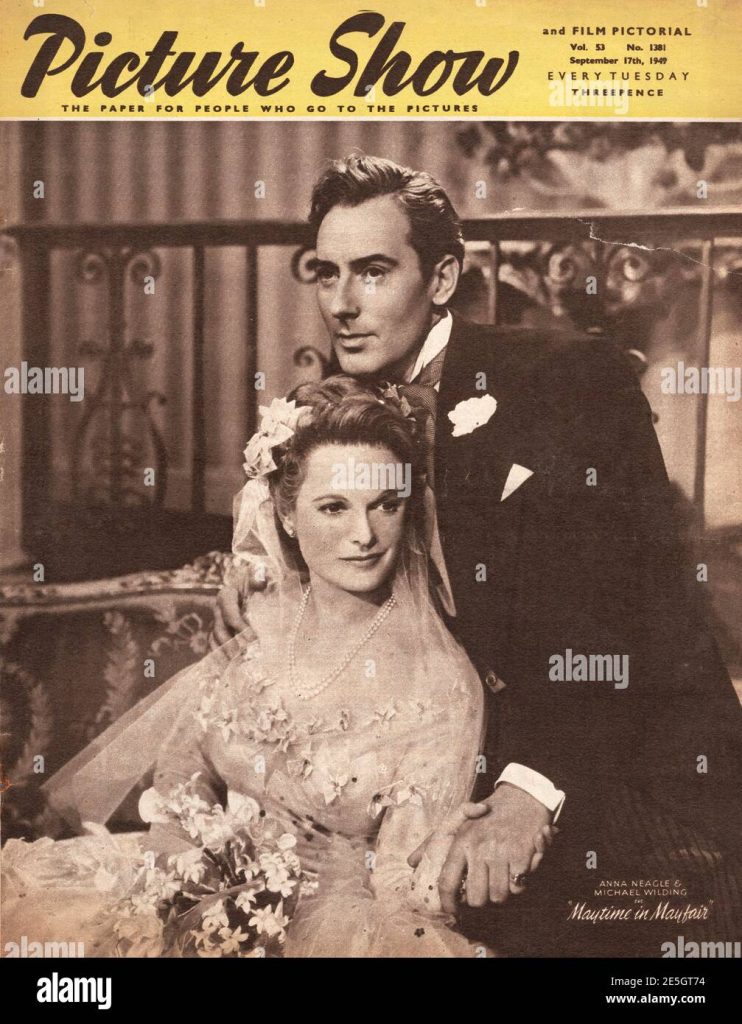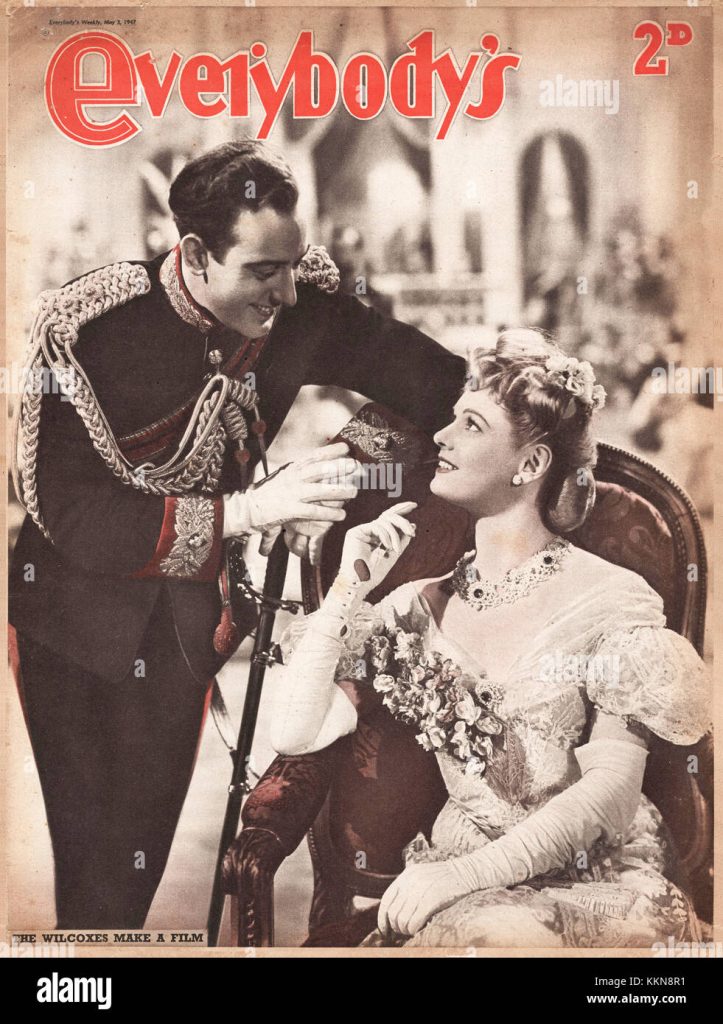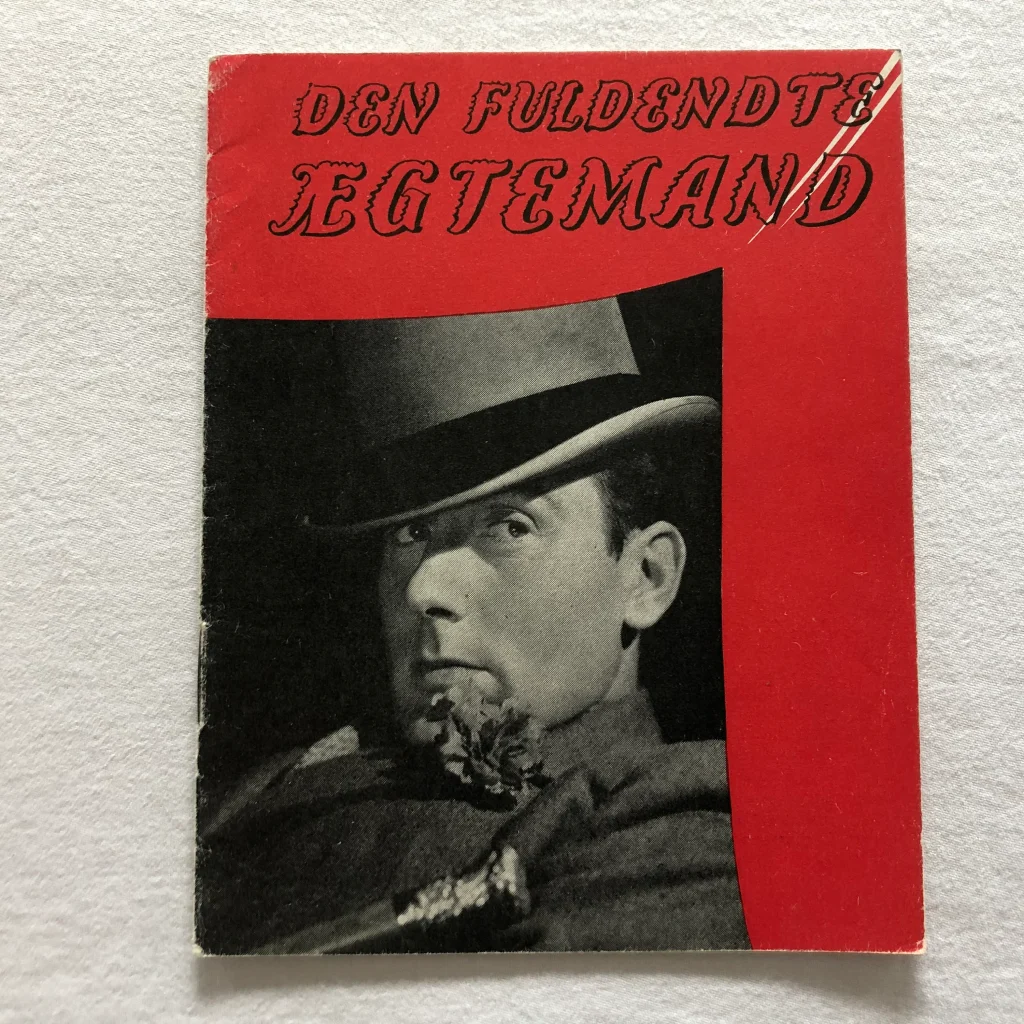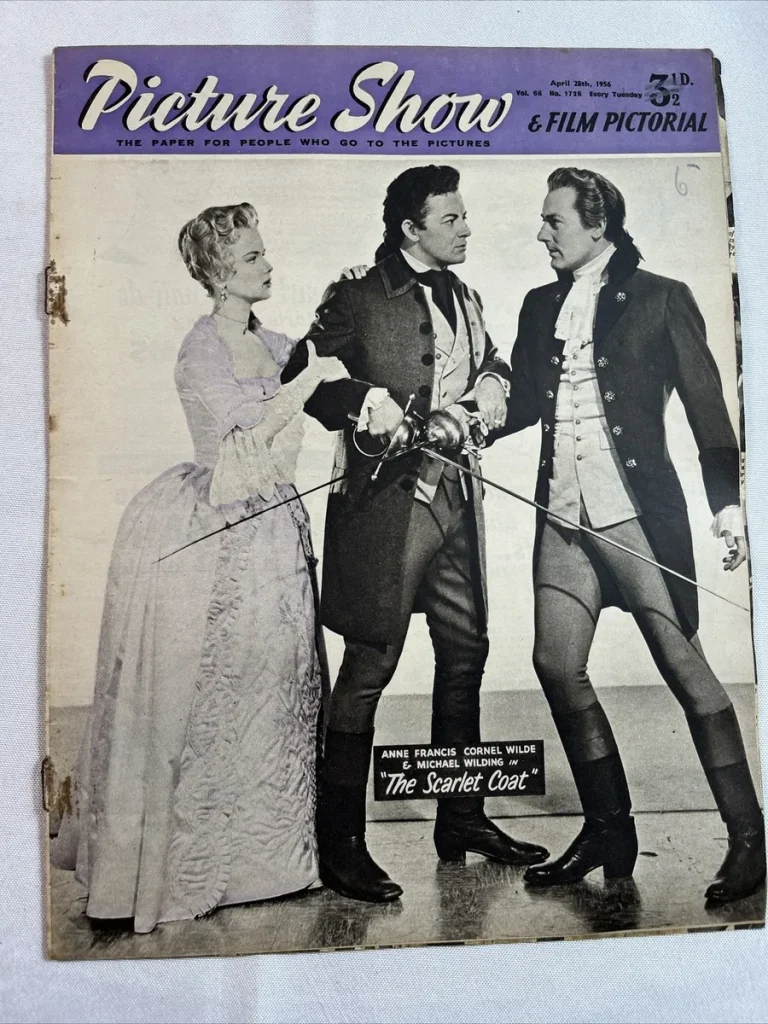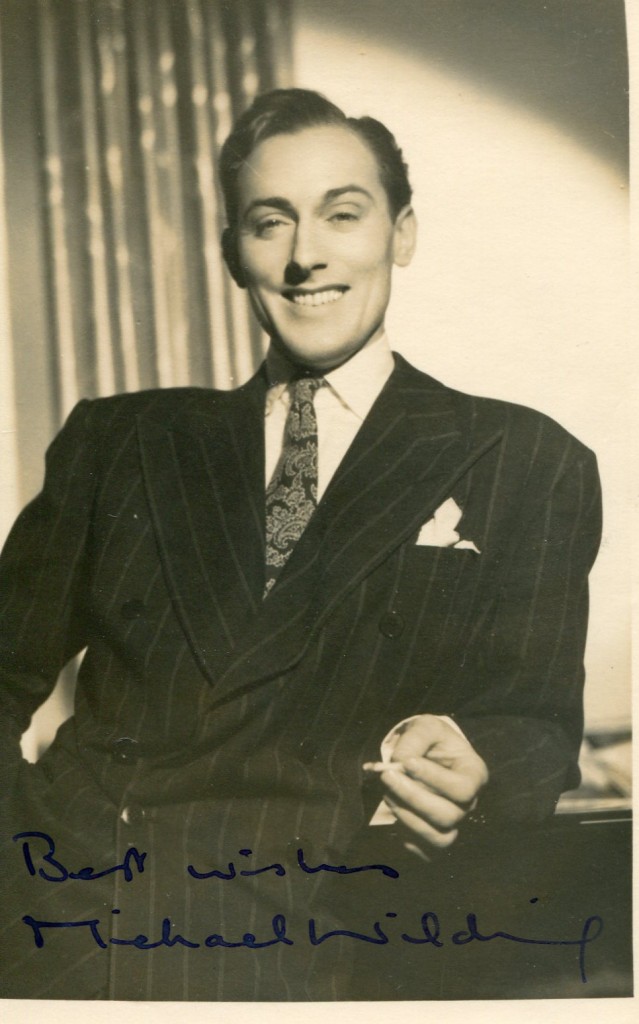
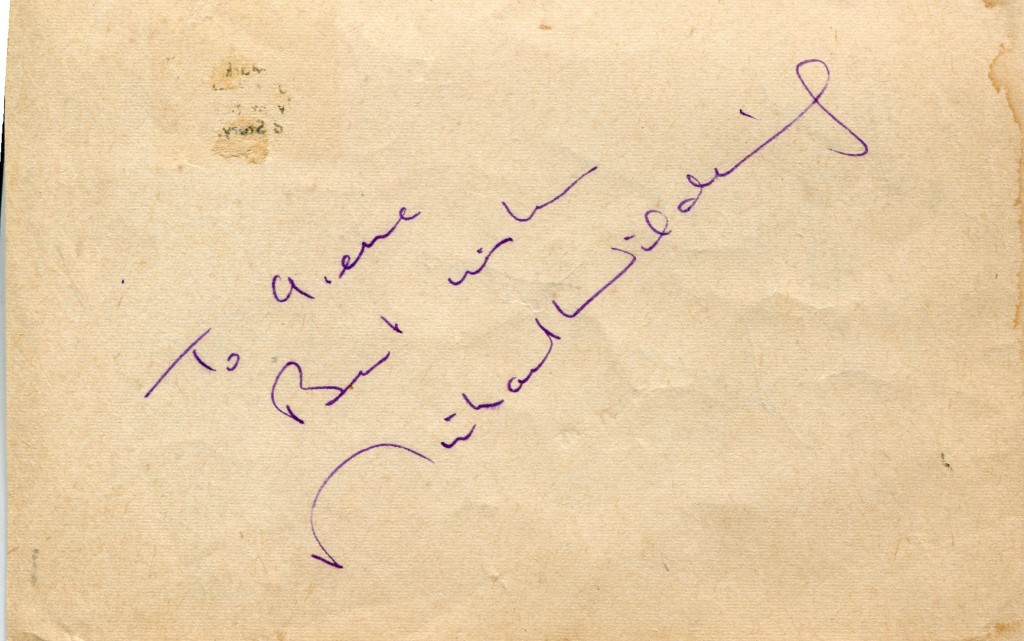
Mr Michael Wilding, one of the most popular film stars of the late 1940s, died in hospital on July 9 after a fall at his home near Chichester. He was 66.
His fame rested principally on a series of romantic comedies — The Courtneys of Curzon Street, Spring in Park Lane and Maytime in Mayfair — which, set in an artificial world inhabited by earls and dukes, provided perfect escapism for British cinema-goers suffering the deprivations of rationing and austerity. Enormously successful at the box office, these films teamed Wilding, usually cast as the elegant aristocrat with Anna Neagle, and they were directed by her husband Herbert Wilcox.
In 1949 Wilding was voted the top British star and he was in the leading 10 each year from 1947 to 1950. His stay at the top however proved to be a brief one and he later confessed surprise that his limited talents had taken him so far and brought him the sort of adulation that was later reserved for pop singers. But while he never pretended to any great range or depth, he managed to radiate a certain romantic charm which for a time, at least, millions of film-goers found irresistible.
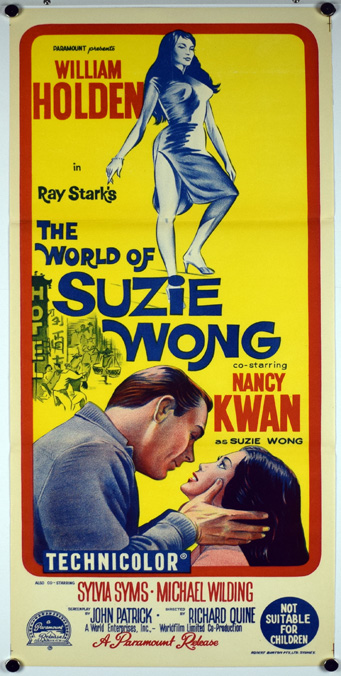
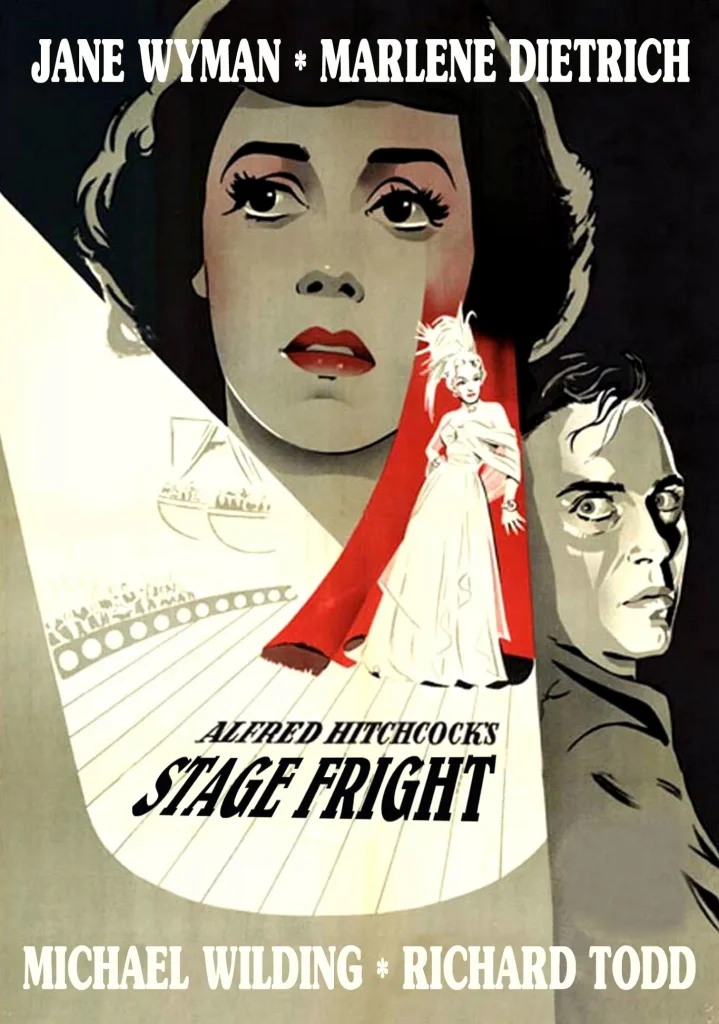
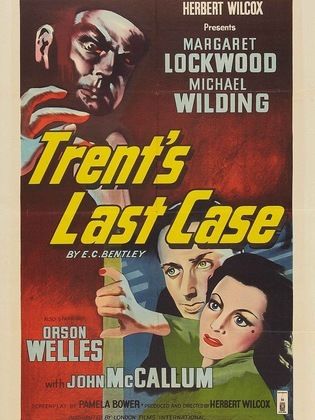
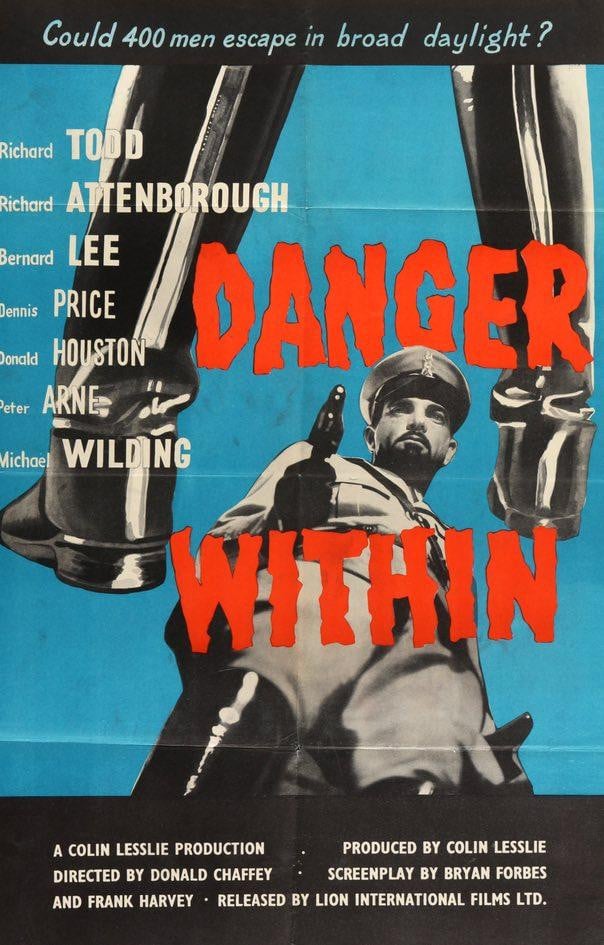
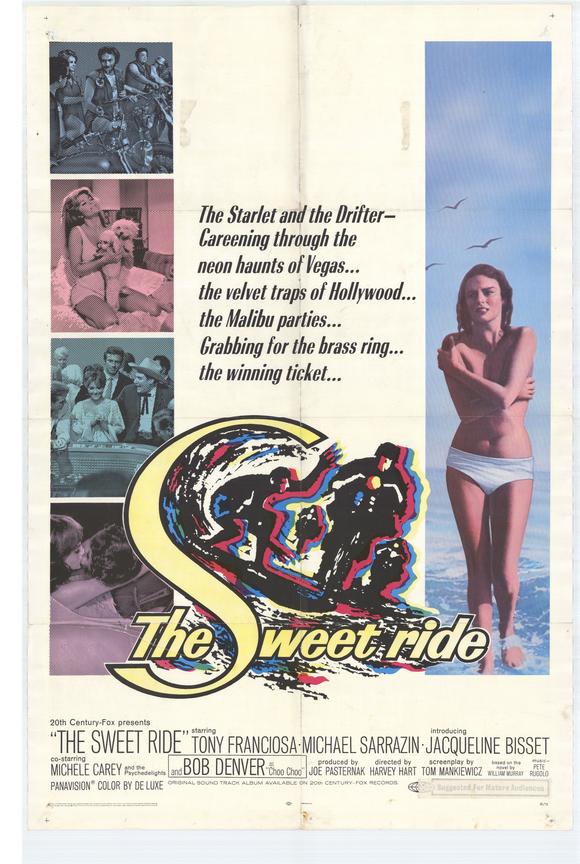
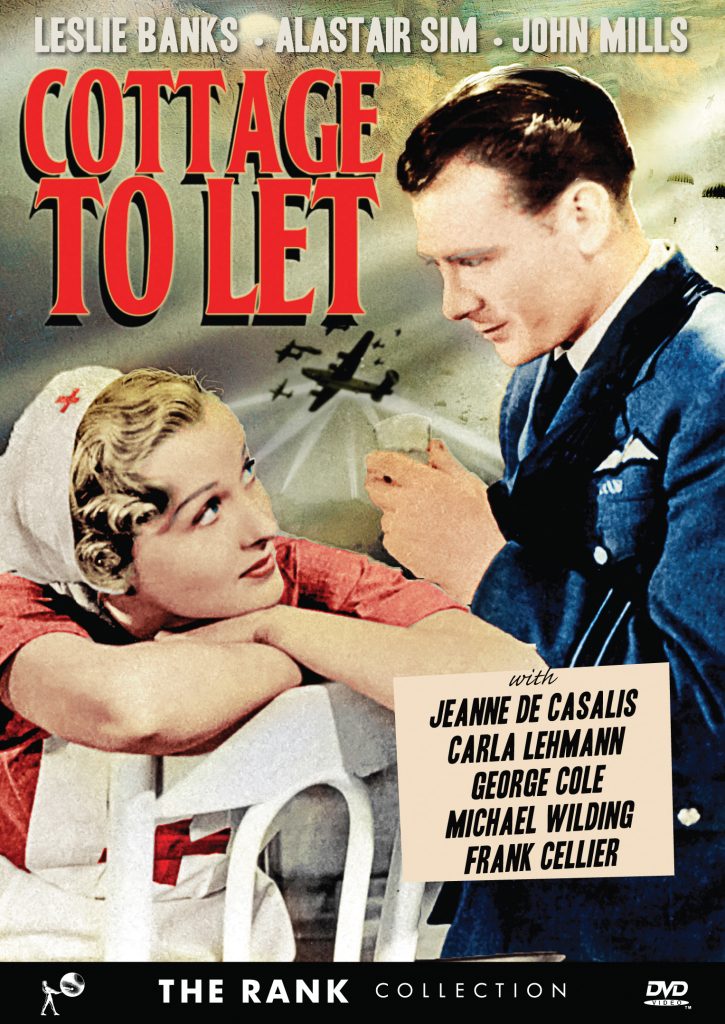
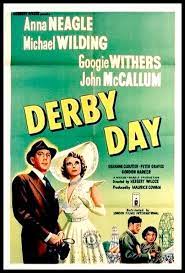
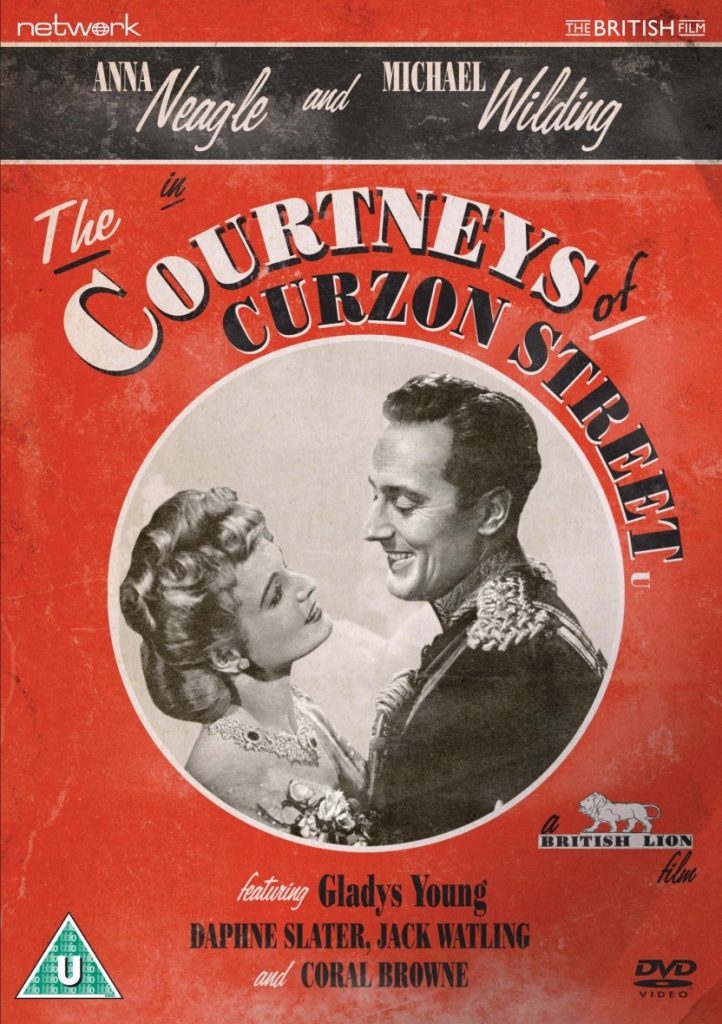
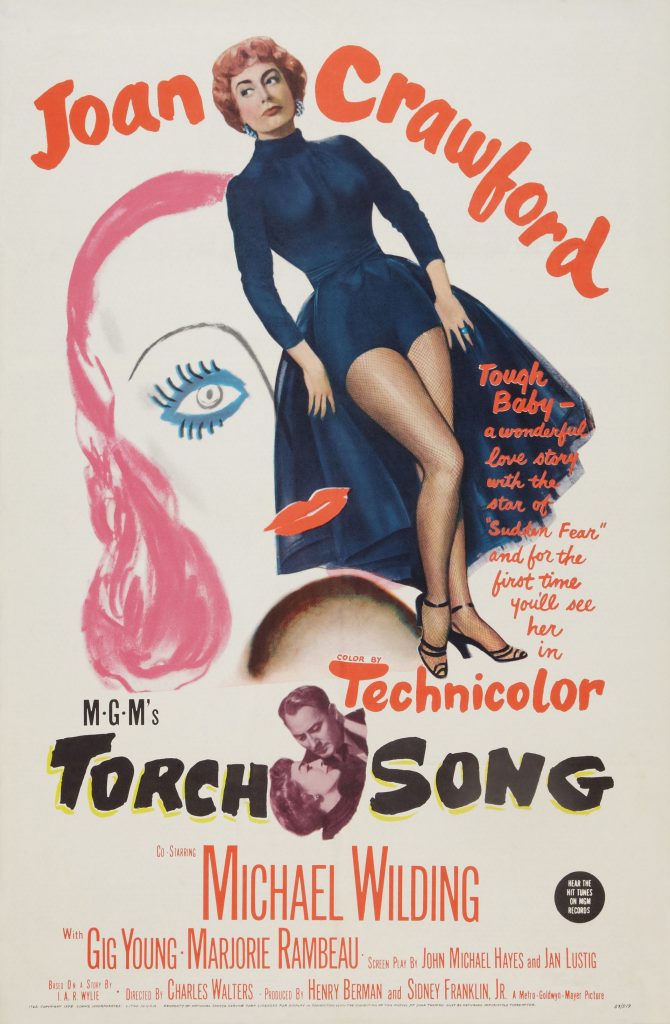
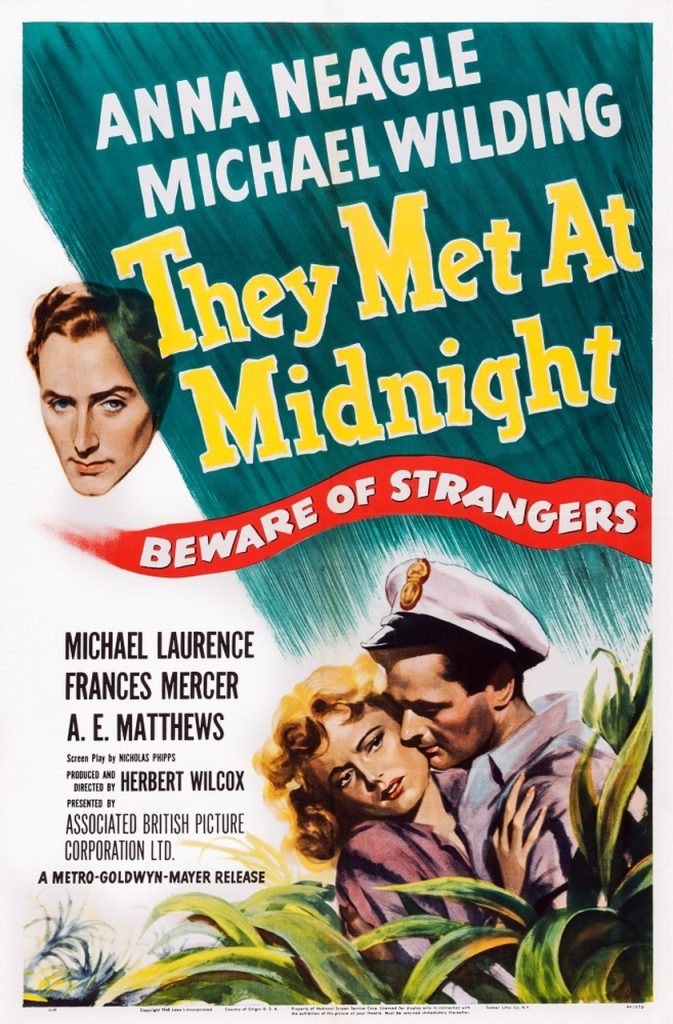
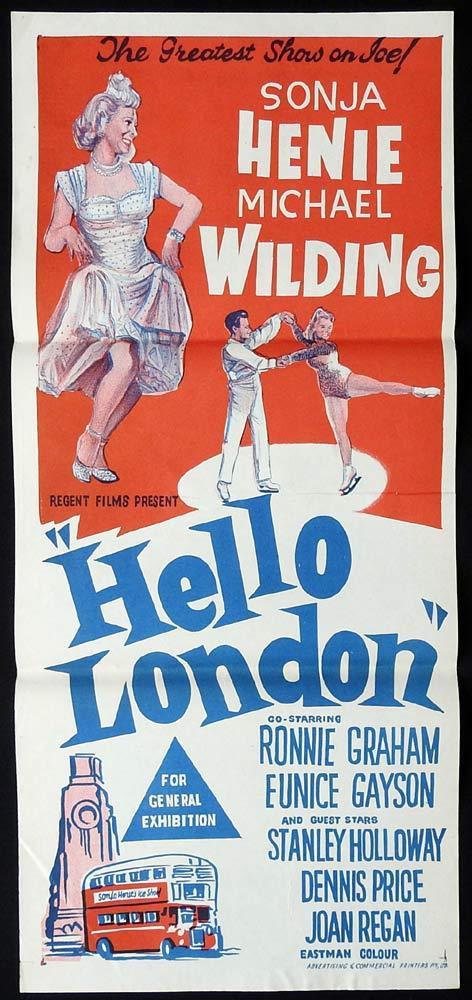
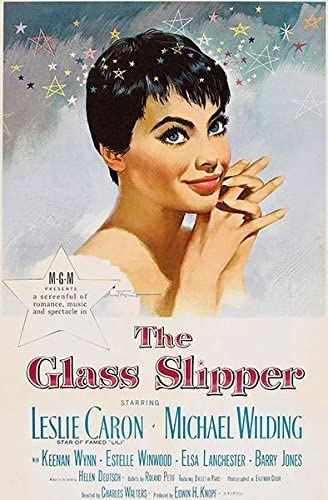
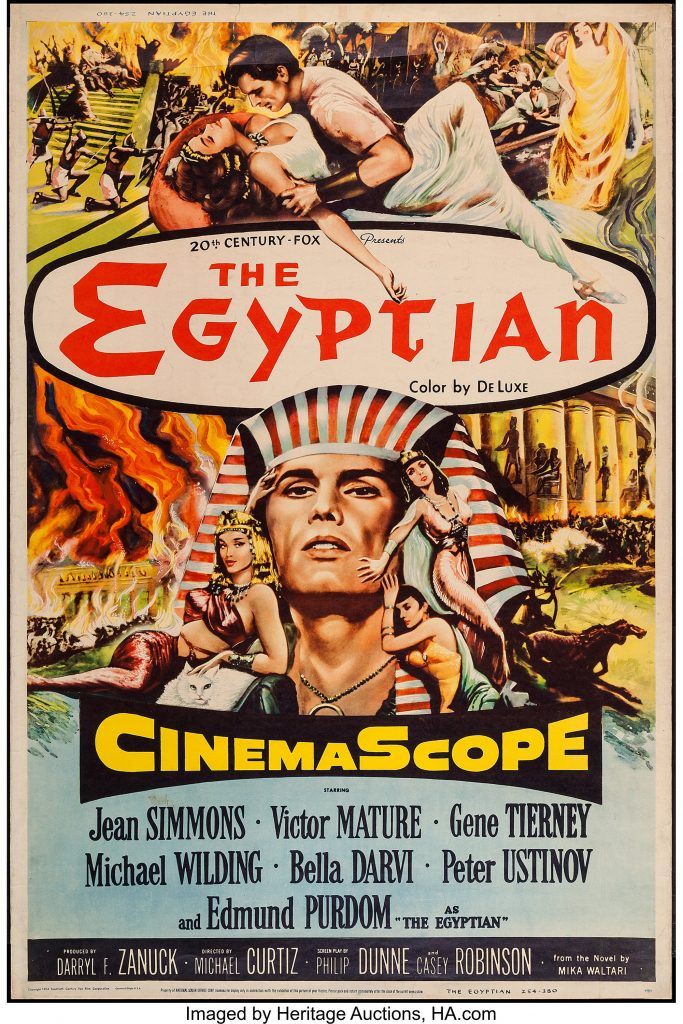
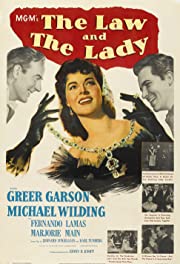
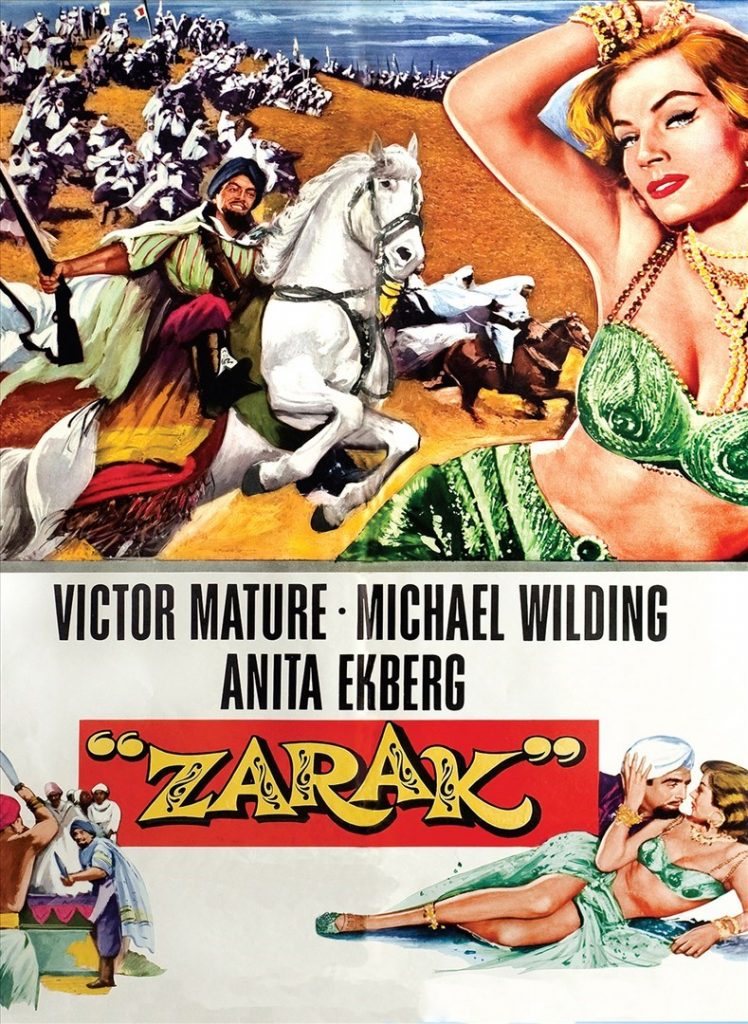
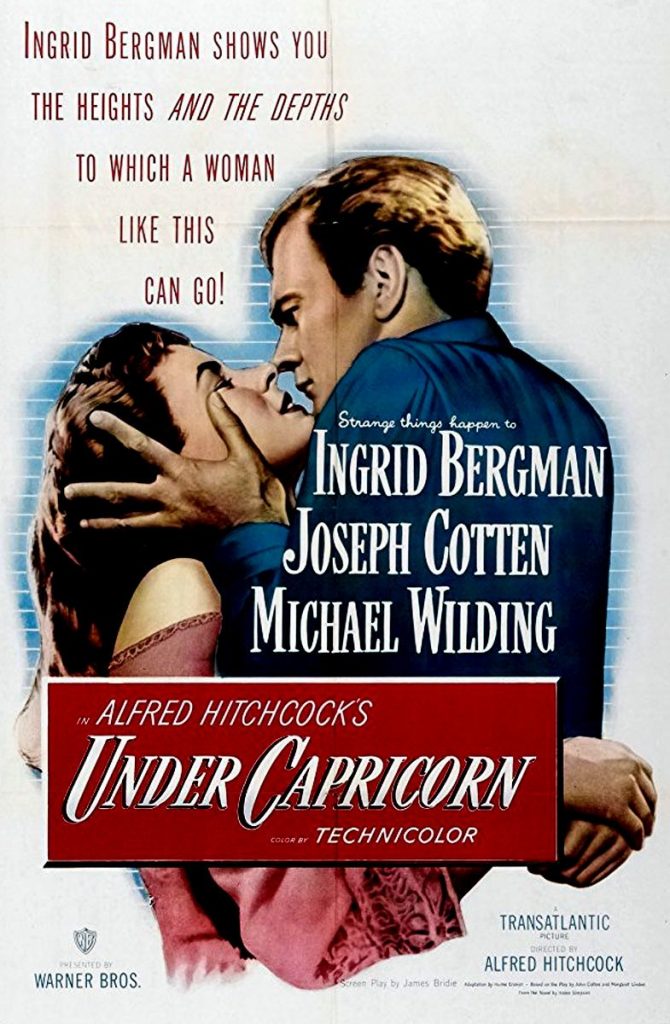
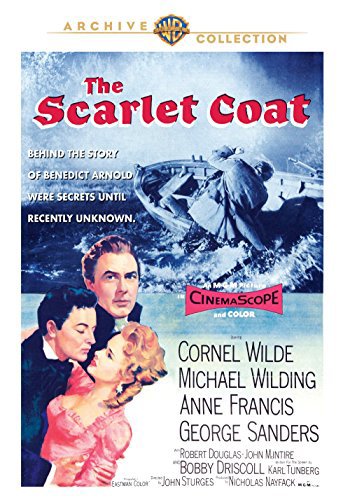
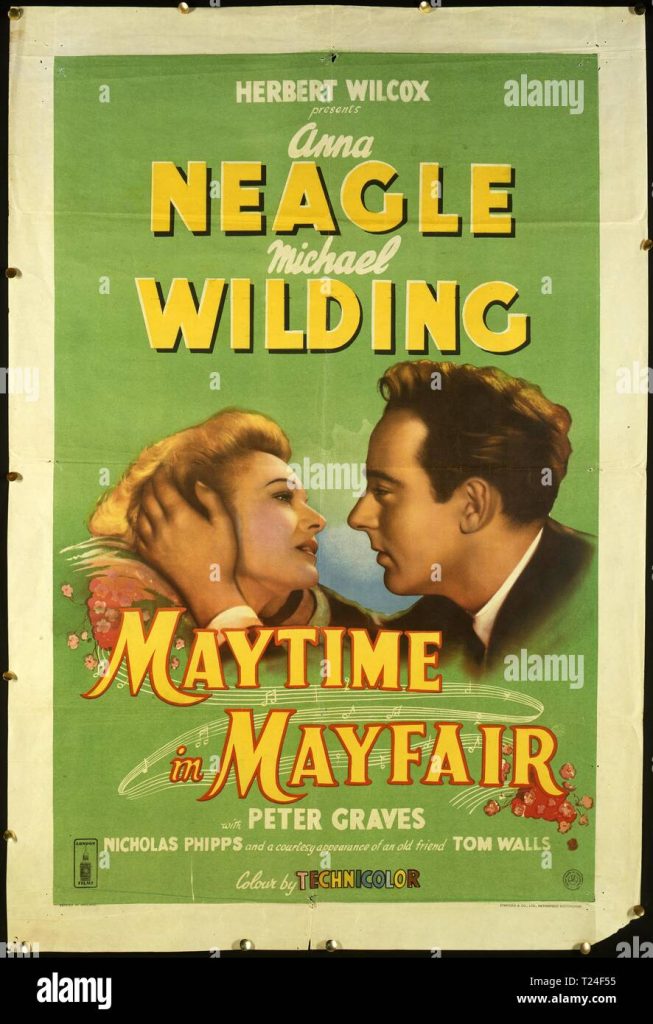
Wilding was born in West-cliff, Essex, on July 23, 1912, and educated at Christ’s Hospital School. He studied art, and it was as a designer that he first entered the cinema. He established himself in films in notable pictures of the early war period, such as Convoy, Kipps, Cottage to Let, the Big Blockade and Noel Coward‘s In Which We Serve. He married for the first time, in 1937, Miss Kay Young. The marriage was dissolved in 1952.
He joined the Neagle-Wilcox team in 1946 to make Piccadilly Incident, the story of a wartime romance, and though Maytime in Mayfair was the summit of the partnership it was to continue through until 1952 with The Lady with the Lamp — a biography of Florence Nightingale — and Derby Day. In between Wilding was in Sir Alexander Korda’s lush production of An Ideal Husband and made two films for Hitchcock, Under Capricorn and Stage Fright. In 1952 he gave his numerous fans the chance to share a real-life romance when at the age of 40 he married the 20-year-old Elizabeth Taylor. The marriage produced two sons but both it and Wilding’s film career foundered. The marriage was dissolved in 1957 and he spent an unhappy time trying to establish himself in Hollywood, returned to Britain for a succession of mostly undistinguished pictures, and in 1963 announced that he was giving up acting to become an agent.
He did this for three years, but later made a partial comeback in the cinema, playing General Ponsonby in the 1969 picture, Waterloo, and other supporting roles in Lady Caroline Lamb and Dr Frankenstein. He married, in 1958, Mrs Susan Nell. This marriage was dissolved.
Wilding’s fourth marriage, in 1964, was to the actress Margaret Leighton, who died in January, 1976.
